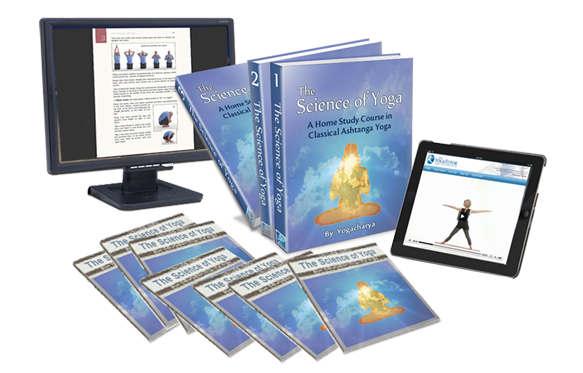[ Excerpt from The Science of Yoga, page 376 ]
We all are confronted with many different external stimuli each and every moment of each and every day. The way that we react or feel toward any of these inputs depends upon two things. Firstly, our current mood impacts greatly how we will react to any given situation, event, person, or circumstance.
However, the second, over-riding factor which determines how we react to life is our subconscious conditioning, or samskaras, a subject which we will explore in greater detail later. These are our habits, patterns of thought and conditioned attitudes, and they are the ultimate source of discontent.
It is the desires deep within the subconscious mind that are the underlying source of discontent. So, even though our mind may be apparently calm and at ease in any particular moment, this calmness is only superficial. This is not true contentment. Beneath the surface, there is an undercurrent of disturbances (desires) which can only be overcome through the cleansing of the subconscious mind.
That is why contentment cannot be gained through force of will alone -- or in other words, through efforts of the conscious mind alone.
This unstable, desire-filled state of the subconscious mind is not at all conducive to internalization and concentration. In this state, the mind, though it may be calm in one moment, will always have the propensity to turn itself outward, into the external world to satisfy one or another deep-seated desire which eventually will again arise.
Even when a particular desire is satisfied, however, there is only a temporary cessation of the feeling of unhappiness. Eventually, any feeling of satisfaction or pleasure that one has received dissipates and again gives way to feelings of unhappiness and discontent. This further stimulates latent desires in a perpetual cycle of 'desire-temporary fulfilment-desire-temporary fulfilment-desire-temporary fulfilment...' and on and on. This is the state of mind of the average person today.
One only has to trace back in their own memory a short distance to find countless examples of this in their own life. Each and every one of us experiences the ultimate fleeting nature of happiness received from fulfilling our desires and expectations in life.
Yet we, all of us, foolishly continue to repeat this approach to life, feeling that somehow, someway, this time our expectations will be met and bring us that bounty of endless joy that we want. How you may have yearned for that new car and been overjoyed ever-so long ago when you finally got it. Now, years later, as it sits in the garage in need of a new muffler, your thoughts have moved toward another shiny new model in the dealer showroom, and how stylish you would look -- how luxurious you would feel -- behind the wheel.
Science considers the human being to be an intelligent species, yet if a lab rat were to continually fall into the same hole over and over again, we would surely dub it 'stupid'.
"A person can reach the end of his needs by eating and drinking or the end of his anger by seeing justice done, but not the end of his greed, even after he has conquered and enjoyed the whole world."
~ BHAGAVATA PURANA
[Continued...]
---------------------
NOTE: This yoga article is an excerpt from The Science of Yoga, an online yoga training program with streaming yoga videos and 600 pages of step-by-step yoga instruction.

"The Science of Yoga is a course worthy of
leather binding and an honored place in the
finest libraries in the world
... It is indeed a masterful work."
Dr. John Michael Christian
AwakeningWithYoga.com
Learn More About
The Science of Yoga Course
|






